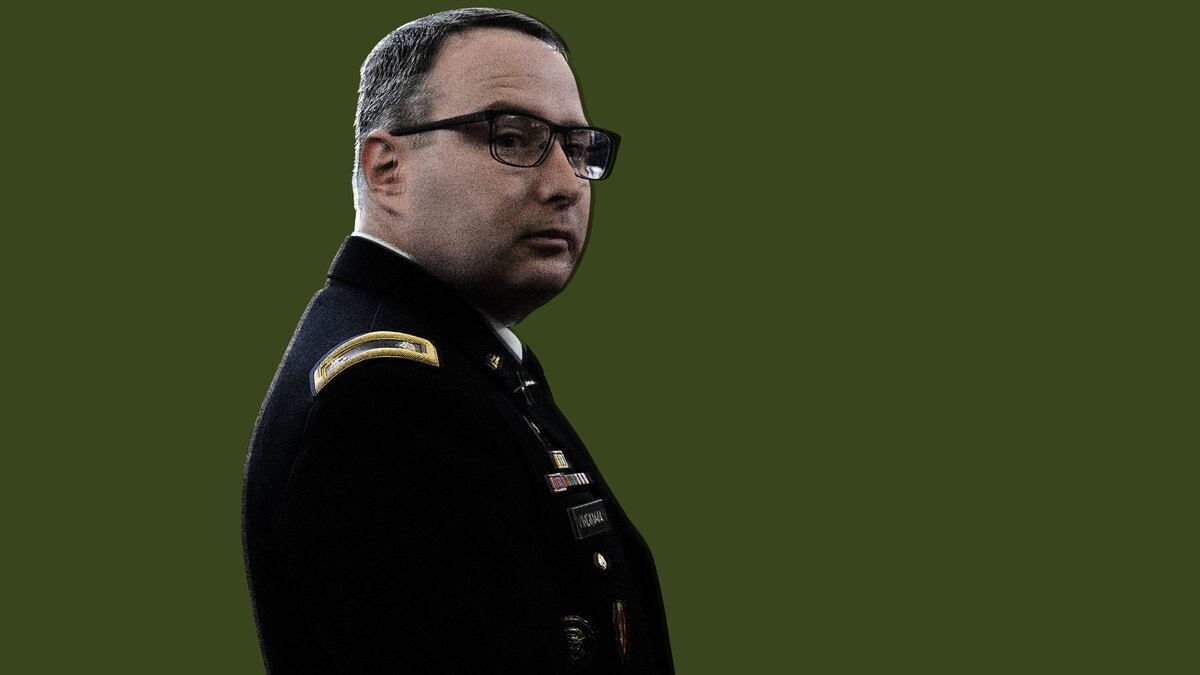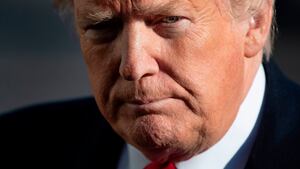The Army officer and former National Security Council staffer who testified in the impeachment inquiry is not under Army investigation, a knowledgeable Defense Department official told The Daily Beast.
But veteran Army officers caution that the lack of an investigation does not necessarily mean Lt. Col. Alexander Vindman has escaped reprisal.
Ever since Vindman was escorted out of the White House on Friday, along with his twin brother, there has been intense speculation over the future of his military career. Vindman has returned to the Department of the Army.
Vindman infuriated President Donald Trump by testifying that the pressure he witnessed on Ukraine to aid the president’s reelection was inappropriate. After the Senate Republicans acquitted Trump in the impeachment trial, Trump has focused on retribution against his perceived enemies within the national-security apparatus. On Tuesday, Trump encouraged the military to discipline Vindman, saying “the military can handle him.” “That’s going to be up to the military, we’ll have to see, but if you look at what happened, they’re going to certainly, I would imagine, take a look at that,” Trump said.
For now, they’re not. The Defense official said the Army was not investigating Vindman—an indication that, thus far, the Army does not see Vindman as committing a professional infraction by testifying to the inquiry.
The durability of that assessment stands as a key question affecting civilian-military relations in the post-impeachment phase of Trump’s presidency. In an indication of how treacherous the military considers the politics of the Vindman episode, not even retired officers would speak on the record for this story.
A source close to Vindman told The Daily Beast, “We have every confidence that the Army and the Department of Defense will regard Lt. Col. Vindman’s truthful testimony in response to a legal congressional subpoena as entirely appropriate.”
A former senior Army officer who would not speak for the record cautioned that just because Vindman is not under investigation does not mean his career is safe. In the military’s “up or out” culture, being denied a promotion to colonel by the next Army promotions board will spell the end of Vindman’s service. And the ex-officer specified that the inherent subjectivity of the officer board will make it impossible to determine precisely if it was the ire of the president that prevents Vindman from ever having birds pinned on his shoulders.
“There’s so much bias that can seep into these promotion boards that all it takes is someone to have an issue with his testimony to tank his promotion possibility,” the retired officer said.
Additionally, just because Vindman isn’t under investigation now doesn’t mean the Army’s decision will hold. Just months ago, the Navy sought against Trump’s wishes to strip accused war criminal Eddie Gallagher of his affiliation with the Navy SEALs. Trump persisted, prompting the departure of Navy Secretary Richard V. Spencer.
Several in national-security circles have been disturbed that no military or civilian leaders within the Defense Department have spoken up for Vindman, a decorated Iraq war veteran whose testimony subjected him to an onslaught of denunciation from Trump’s allies. As Vindman, an immigrant from the former Soviet Union, testified in November, he found his loyalty to the United States called into question.
The Democratic Senate leader, New York’s Chuck Schumer, called even before Vindman’s testimony for the Army leadership to "issue public statements indicating your support for him." None manifested. On Friday, following the early end to Vindman’s NSC assignment, the Democratic chairman of the House Armed Services Committee, Adam Smith of California, “urge[d] Army leadership to ensure this brave Soldier does not experience any further retribution.”
Through a spokesperson, Army Gen. Mark Milley, the chairman of the Joint Chiefs of Staff, declined to comment about Vindman. Milley was formerly chief of staff of the Army. A representative for Defense Secretary Mark Esper did not respond to a request for comment about the propriety of disciplining Vindman.
Ryan McCarthy, the secretary of the Army, told Cheddar that Vindman would temporarily work at the Department of the Army headquarters “and then we’ll send him off to war college this summer.” An Army source cautioned that the previously-scheduled board reviewing senior-service college assignments has yet to determine which one Vindman will attend.
Vindman also came under attack on Tuesday from his former boss, national security adviser Robert O’Brien. During an appearance at the Atlantic Council, O’Brien said that the premature end of Vindman’s NSC billet, which had been slated to run through May, was necessary because Trump is “entitled to a staff that he has confidence in and that he believes will execute his policy.”
But as he testified, Vindman thought he was executing policy—the formal policy of supporting Ukraine, for which Congress had appropriated nearly $400 million in aid that Trump had withheld as pressure. Yet O’Brien suggested that Vindman’s objections to secretly conditioning aid on a foreign power’s willingness to aid Trump’s reelection were the real abuse of power.
“We're not some banana republic where lieutenant colonels get together and decide what the policy is,” O’Brien said.
Not everyone thinks speaking out on Vindman is helpful. A different former senior military officer who also would not speak for the record said the consensus among his retired colleagues is that “we should not put more pressure on the leaders or increase the attention given to this issue, as that could prove counterproductive.” The ex-officer expressed confidence in Esper and Milley to “ensure that nothing untoward transpires” against Vindman.
But the first ex-officer said that the brass’ silence about Vindman is nothing short of dishonorable.
“It smacks of the craven careerism that has permeated the ranks of our senior officer corps,” this retired Army officer said. “It’s definitely dishonorable when public accountability and public ethics are so in question that those people whose careers are built on alleged public ethics and accountability are not present…. If they can’t take care of their men and women when the heat is on on a political level, I cannot imagine how they handle taking care of them in the heat of combat.”
—with additional reporting by Molly Jong-Fast







